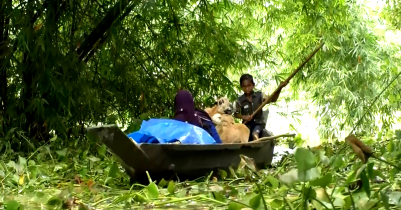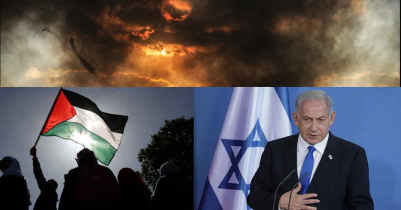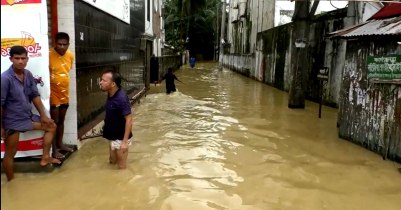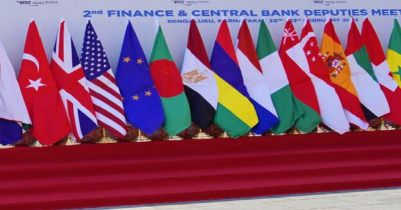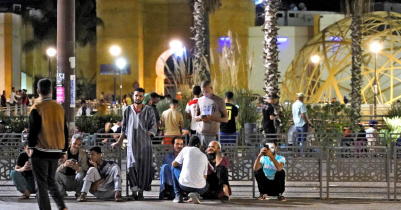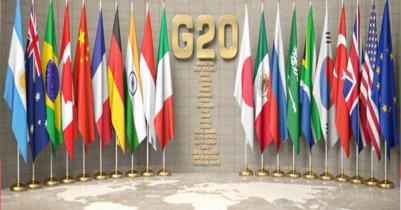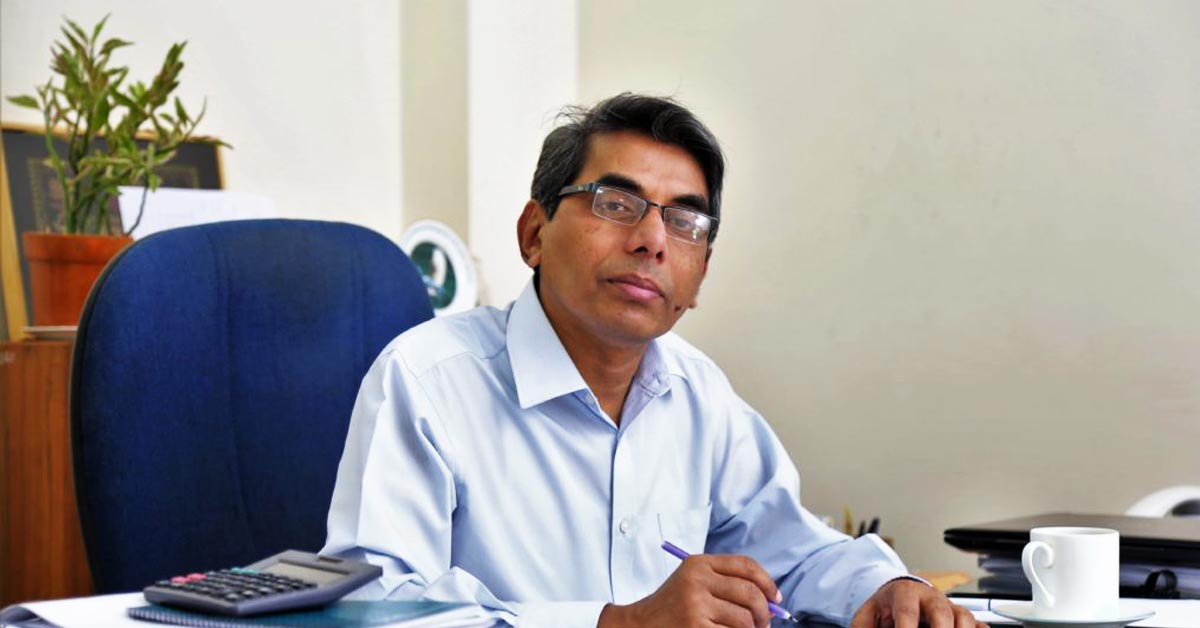Eye News Desk
Russia sanctions: EU to name and shame sanction evaders?
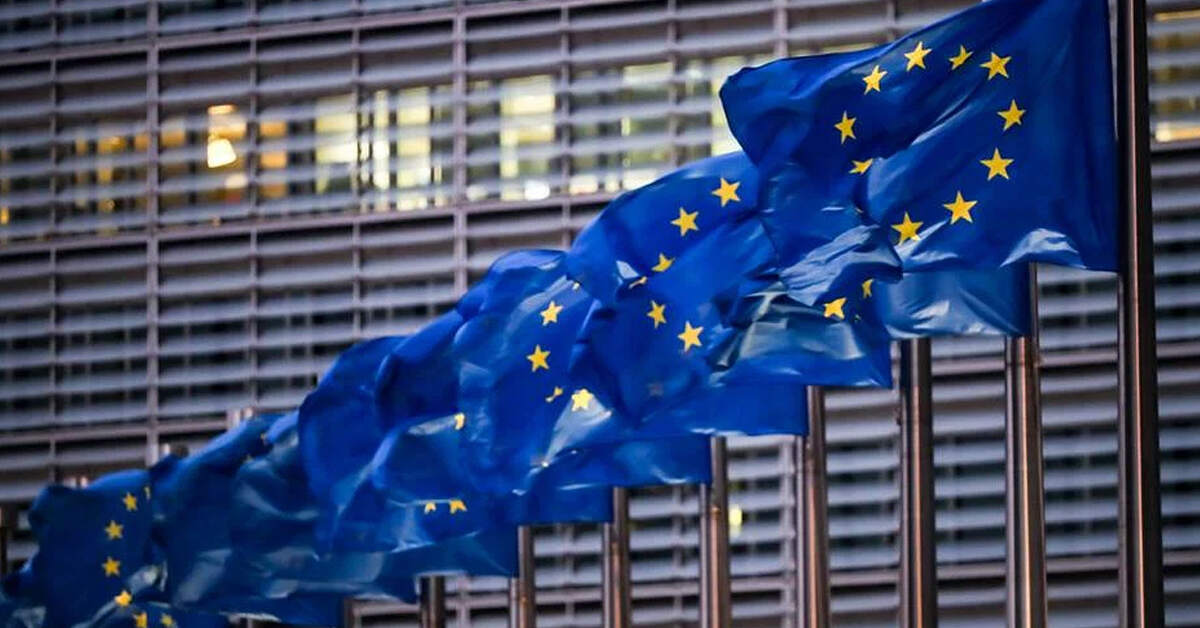
The EU is currently discussing the issue of sanctions evasion in its 11th round of sanctions against Russia over the war in Ukraine. As chief spokesperson for the European Commission (EC) Eric Mamer confirmed, the commission passed on new proposals to its member states on Friday.
Since Russia’s full-scale invasion of Ukraine on 24 February, 2022, the European Union (EU) has so far slapped 10 rounds of sanctions on Russia. These comprise listings of individuals, export and import bans, and sectoral measures in banking and transport, as well as the prohibition of Russian flights in EU airspace.
Among the most substantial sanctions to-date have been the ban on Russian seaborne crude oil, and a price cap for crude oil and petroleum products. Still, despite extensive sanction packages, the Russian economy has not contracted as much as 2022 forecasts had predicted. Experts said this was not an indication that the sanctions did not work. But they did criticise a carve-out for the energy sector.
The discussion has since shifted towards the question of sanction evasion, as EU goods under export ban are still seemingly finding their way to Russia.
“Foreign trade data available to us indicate that EU-sanctioned goods are exported to a considerable extent from the EU… to certain third countries, and from there further exported to Russia,” the German Federal Ministry for Economic Affairs and Climate Action (BMWK) wrote in a paper published February.
Some details are already known
On Monday, the EC confirmed that the issue of sanction evasion would be dealt with in the upcoming sanction package, but declined to give further details. However, some elements have already been disclosed.
According to the German Press Agency (dpa), the proposals include foreseeing the legal possibility to ban the export of goods to third countries suspected of circumventing sanctions. This should serve as a deterrence. In a following step, certain exports could indeed be prevented, dpa reported.
A particular focus is expected to be placed on so-called dual-use products, which can be used for civilian and military purposes. In February, when presenting his ministry’s paper to the press, Federal Minister for Economic Affairs and Climate Action Robert Habeck (Green Party) said high-tech goods and other dual-use products were being scrutinised.
As dpa reported, the EC’s proposal mentions such dual-use products as devices equipped with night vision, which could be useful for hunters, security firms, or armed fighters.
Name and shame sanction evaders?
When presenting his proposals for strengthening the enforcement of sanctions, Minister Habeck admitted that Germany was among those committing “clear evasions of sanctions.” However, he avoided naming third countries or firms involved. So far, there has been widespread reluctance to publically name and shame the firms and countries possibly involved in sanctions evasion.
German Economy Minister Robert Habeck explained his ideas to prevent sanctions circumvention to the press in February.
As the political news outlet Politico reported, this could change with the upcoming round of sanctions. According to the media organisation, the new sanction regime proposal includes the legal groundwork to sanction third countries, as well as an annex with space to call out specific countries and products. While a senior EU official was able to confirm the existence of such a country list to DW, they added that no country was currently on it.
According to sources of the news agency Reuters, the EU has identified China, Turkey, and the United Arab Emirates, as well as countries in Central Asia and the Caucasus as potential culprits.
These countries widely match the indications economists gave DW in March. Maria Demertzis of the Bruegel think tank said “the big suspicion would be with countries that have not sanctioned Russia.” In her opinion, two major countries were important in this regard — Turkey and China.
As dpa reported, EU experts have attested that Turkey has been taking rather decisive steps to put a stop to sanction evasions. And according to Reuters, seven Chinese companies could be subject to an asset freeze in the EU, as diplomats familiar with the proposal reportedly stated. On Monday, Chinese foreign ministry spokesperson Wang Wenbin said his country was urging the EU not to take the “wrong path”, and that China was prepared to take action to safeguard its rights and interests.
In March, Beata Javorcik, Chief Economist at the European Bank for Reconstruction and Development (EBRD) and co-author of a study looking into trade data, offered three more names: Armenia, Kazakhstan and Kyrgyzstan. At the time, none of these countries answered DW’s request for comment.
Earlier this year, policy experts of the German Council on Foreign Relations (DGAP) called for a name-and-shame strategy to bolster the enforcement of EU’s sanctions. It is now up to the member states to decide whether they want to go down that path.
The ambassadors of the 27 EU member states are scheduled to discuss the new proposal on Wednesday. In Brussels, it is expected that these negotiations will take time.
Read More
- Dubai-bound flight catches fire after taking off from Nepal
- Turkey`s homegrown 5th-generation fighter jet named KAAN
- Shihab Chottur reaches Makkah from India in 12 months
- Eid Ul Adha 2023 in Saudi Arabia!
- India gets new parliament building
- Italy will take 82 thousand workers, the is in March
- Two Sylheti killed in Portugal
- World`s first 3D-printed mosque to be constructed in Dubai
- Imran Khan likely to be in custody for ‘4 to 5 days’
- Karnataka: Modi invokes `The Kerala Story` to target Congress





